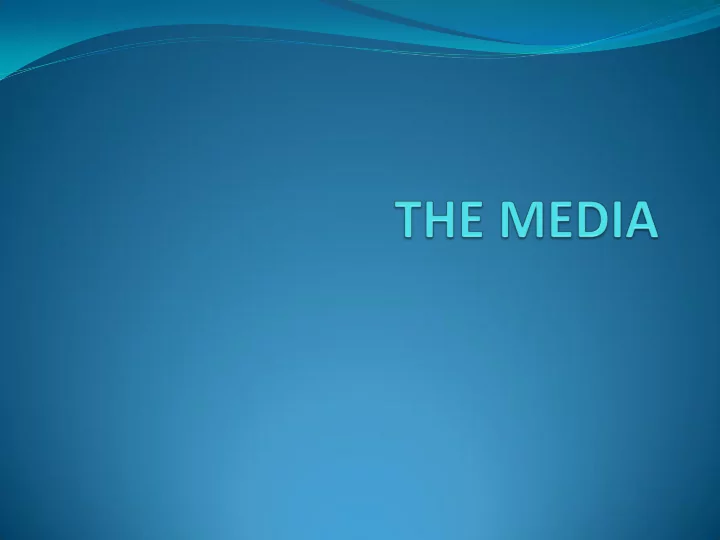

CULTIVATING MEDIA RELATIONSHIPS What do journalists have to offer? Access to critics Public feedback Advance notice regarding upcoming stories Story postponement
What can candidates give in return? Sense of access Confirmation of story details Contact names and numbers Exclusives
THE THREE Ps
PROACTIVE Know what is news and why Anticipate controversy Think like your critics Think like a reporter
PREPARED Do your homework Gather supporting facts Review past news articles Know your agenda
PRACTICED Know what you’re going to say Know how to say it effectively
QUESTIONABLE QUESTIONING TECHNIQUES The Casual Comment The Silent Treatment The Poker Face The Deja Vu
DEVELOP A MEDIA PLAN/ MESSAGING Know the story you want reported Determine your main points (2-3) Create sound bites Insert red flag words Use various set-up phrases Be concise Write down your sound bites and practice saying them
Surviving a Media Interview Stay on message: springboard Always think before you speak Don’t answer hypothetical questions Keep your personal opinions to yourself Don’t answer comparison questions
Surviving a Media Interview (2) Use absolute denials with caution Take away the power of the punch Don’t repeat negative words Find the positive spin in the negative question Use Creative Avoidance Don’t fight back
Surviving a Media Interview (3) Pass the buck Test your boundaries Ask the reporter to repeat the question Eliminate titles Show humility Something to add?
MEDIA GROUND RULES On the Record Can be quoted directly Attributed to source by name and title Off the Record May not be reported by journalist Meant only to educate
MEDIA GROUND RULES (2) On Background Can be quoted directly or paraphrased May not be attributed to source by name or title Generic attribution is used Deep Background No direct quotes No attribution to the spokesperson Information may be used to help report story Information belongs to the reporter
Media Communication Earned Media vs. Paid Media Press Advisories Sent to media before an event to notify them of date, time, location Press Releases Provide essential facts of a speech or event and are written like newspaper articles Speech Texts Entire copies of candidate’s speech can be distributed to reporters
TV/Radio Appearance
Know the Show What is the program’s format? Is it broadcast locally, nationally, internationally? Do decision makers watch the program? Will it be a one-on-one interview or a panel discussion? Will the interview be recorded or live? What topics will you be asked to discuss? How much time will be allotted for the interview? What language will the program be in? What will the interview backdrop look like?
Television Etiquette Looking at the camera Looking at the reporter Cheat your body toward the camera Be aware of camera framing Don’t fidget Learn how to sit properly Use natural gestures and make sure they can be seen Avoid negative body language Greet the videographer/studio crew REMEMBER — our bodies always communicate
Tips for Radio Determine the right distance for the microphone Keep your hands off the table to avoid tapping Have good stories Use effective voice inflections
Recommend
More recommend